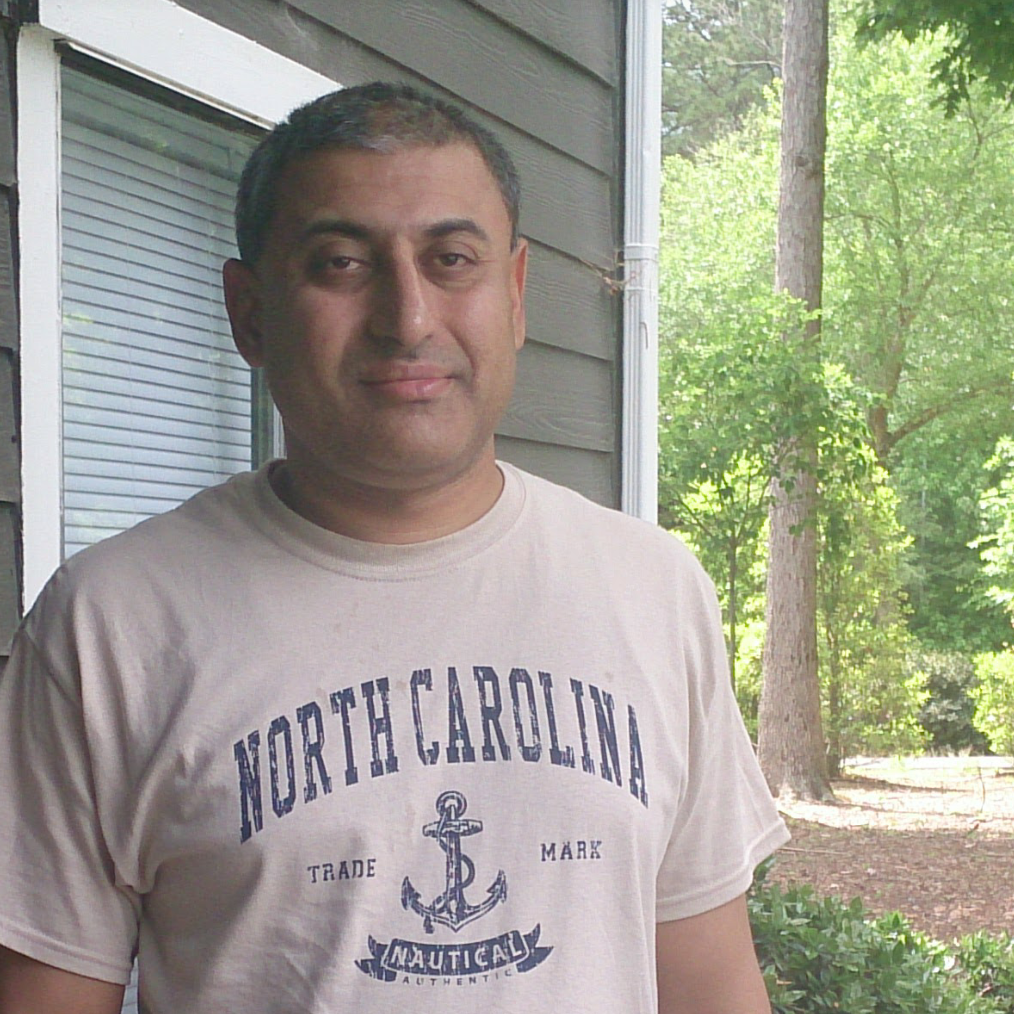The North Carolina voter whose support swung from Trump to Biden because of Uighur Muslims in China
As a tech worker, Sajjad Altaf says he applies the DevOps principle of ‘continuous improvement’ to elections

Your support helps us to tell the story
From reproductive rights to climate change to Big Tech, The Independent is on the ground when the story is developing. Whether it's investigating the financials of Elon Musk's pro-Trump PAC or producing our latest documentary, 'The A Word', which shines a light on the American women fighting for reproductive rights, we know how important it is to parse out the facts from the messaging.
At such a critical moment in US history, we need reporters on the ground. Your donation allows us to keep sending journalists to speak to both sides of the story.
The Independent is trusted by Americans across the entire political spectrum. And unlike many other quality news outlets, we choose not to lock Americans out of our reporting and analysis with paywalls. We believe quality journalism should be available to everyone, paid for by those who can afford it.
Your support makes all the difference.In some ways, Sajjad Altaf views quarantine orders triggered by the coronavirus pandemic as karma – a “divine response” to the world’s silence towards other forced lockdowns, like China’s detainment of Uighur Muslims, or the Indian siege of Kashmir.
Of course, Covid-19 “does not discriminate based on religion”, Altaf notes in a recent interview with The Independent, and the stay-at-home guidelines are nowhere near as oppressive.
But for the 43-year-old North Carolina voter, who is Muslim and describes himself as a spiritual person, it’s no coincidence that many of the same foreign governments which largely ignored the plight of minority groups in confinement have now issued lockdown orders themselves.
What’s more, Altaf blames world leaders like President Donald Trump for allowing China to detain Uighurs and India to occupy the disputed territory of Kashmir last year, “months before the rest of the world heard the word ‘lockdown’ so often”.
He also blames Trump in part for the staggering Covid-19 death toll in the US that only continues to rise, as experts say a more aggressive approach to combating the virus in the initial months of the outbreak may have saved countless lives.

Altaf does not identify with either of the major political parties, but says he voted for Hillary Clinton in 2016, in part due to Trump’s use of inflammatory, anti-Muslim rhetoric throughout the campaign trail.
The president’s controversial actions on foreign policy, slow response to the pandemic and travel ban on Muslim-majority nations have all but cemented Altaf’s decision that Trump has not earned his vote in 2020.
Still, Altaf admits there have been moments of Trump’s presidency that have convinced him he may cast a ballot for the Republican incumbent come November.
Prior to the pandemic, the economy was mostly in decent shape. And as a pacifist, Altaf approved of Trump not launching any new wars, as well as his response to Iran striking down a US drone, when the president reportedly called off an airstrike in an abrupt move that stunned his aides.
“I became his fan that day,” Altaf recalls, calling the decision a “good gesture” and “a step in the right direction to bring peace in the world”.
However, Altaf can’t square those positives with the many negative aspects of Trump’s presidency he’s seen over the last four years.
Altaf spoke in detail about his concern over Trump’s foreign policy choices and China’s treatment of Uighurs in our interview a day before it was reported that Trump thought China establishing concentration camps for the minority group was “exactly the right thing to do”, according to the president’s ex-national security adviser, John Bolton.
Click here to read more of The Independent’s series, Polarized: Voices From Across America
By Thursday, Trump signed a new law calling for sanctions as a punishment for China’s human rights abuses. The president’s support for the legislation came after years of silence on the issue, as he was facing a bevy of negative press over the explosive allegations in his former top aide’s new book.
Meanwhile, former vice president Joe Biden, the presumptive Democratic nominee, has been outspoken about China’s internment of Uighur Muslims along the campaign trail, calling it “among the worst abuses of human rights in the world today” in a statement last year. His campaign has also called on the Indian government to “take all necessary steps to restore rights for all the people of Kashmir”.
The disparities in how both candidates have addressed human rights issues around the world seems to leave Altaf with no choice.
Though he initially was a supporter of Vermont Senator Bernie Sanders, and feared Biden was a “same old politics guy”, he says the US “will be better off” with the former vice president than Trump in the Oval Office for another four years.
Biden is “bringing leadership experience with him which Trump lacked,” Altaf says. “We need a change: we cannot continue with Trumpian policies as those are what got us here.”
Altaf supports policies like Medicare for All and other progressive measures Sanders made central to his bid for the presidency.
But for this voter, perhaps more than anything, the upcoming election comes down to which candidate has the ability to address fundamental issues regardless of how it plays into their potential re-election prospects.
“I appreciate the leaders who can say the truth and [are] willing to say it no matter the consequences,” he says, noting that was a major reason why he supported Sanders in the Democratic primaries. “Whether they lose a lot of support, [or] lose an election over it.”
He adds: “Others might think the same but would not say that, because it takes a lot of courage to say something which goes against mainstream ideals.”
Since Biden has been more willing to speak out against the human rights atrocities Trump and his allies have ignored, Altaf seems nearly certain the presumptive Democratic nominee has his vote.
What’s more, he suggests a Biden presidency could be built upon; shaped and influenced by those calling for change and demanding a progressive future.
As someone who works in information technology, Altaf says he believes in the “DevOps principle of ‘continuous improvement’.”
“I would apply the same formula of ‘continuous improvement’ in politics,” he concludes. “My message to [Sanders] supporters would be to support Biden this time around to improve upon Trump, then next time around we will try to improve upon Biden and elect a progressive candidate to the presidency.”
Join our commenting forum
Join thought-provoking conversations, follow other Independent readers and see their replies
Comments